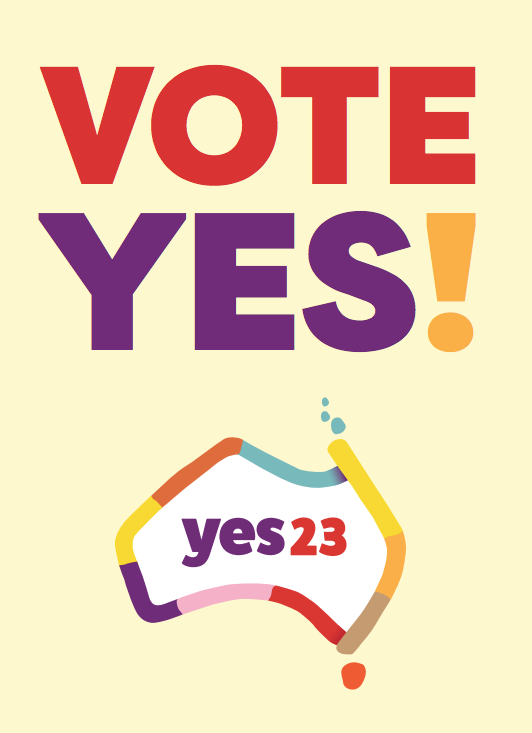Why Listen to this Before You Decide on Your Vote on The Voice to Parliament in Australia and You Leading Your Best Life

If you believe in people having the opportnity to lead their best lives then you will believe in the power and importance of people - no matter who they are - having a say about how their lives are to be lived.
This podcast started with a good mate of mine challenging me on my support of the Australian Voice to Parliament referendum.
I say "Vote Yes" - he says "Vote No.."
Have a listen and you decide for yourself..\xa0
For more resources go to my Facebook page including:
The Voice -- UN Declaration on Indigenous People that Australia has committed to.. I draw your attention in particular to Articles 18 to 22.. Exactly what the Voice to Parliament is attempting to do It is the fair, the right, the reasonable, the practical thing to do.. Indigenous People live in two worlds at the same time.. The world of 60,000 years and the world of the past 200 years.. Almost no one in Parliament or the Executive understands the complexities of those two worlds.. Have a look at these Articles 18 to 22.... and make up your own mind.. The choice is yours https://www.ohchr.org/.../Declaration_indigenous_en.pdf \xa0 \xa0 The keyboard discussion on the Voice.. I should be working but a good friend of mine from Melbourne is challenging my position on the Voice.. telling me it is in conflict with Articles 2 and 21 of the UN Charter.... I do appreciate him challenging me as it forces me to dig up the actual facts and data -- so I may as well share it with other 'doubting Thomases..' Without giving away identities.. these are my replies and here are some further resources to help you with your thinking and decision making.. I just read Articles 2 and 21 -- there is no such conflict -- especially Article 21 which talks about the General Assembly -- Article 21 The General Assembly shall adopt its own rules of procedure. It shall elect its President for each session. In talking of the UN -- I draw your attention to the UN Declaration on the rights of Indigenous Peoples (UNDRIP) -- 2007 -- finally endorsed by Australia which had previously abstained when under a Liberal Government.. The Declaration addresses both individual and collective rights; cultural rights and identity; rights to education, health, employment, language, and others. It outlaws discrimination against indigenous peoples and promotes their full and effective participation in all matters that concern them. https://www.ohchr.org/.../un-declaration-rights....\\ In particular I draw your attention to this UN Declaration -- https://www.ohchr.org/.../Declaration_indigenous_en.pdf --and in particular Article 18 -- \xa0 This is what Former High Court Chief Justice Robert French said about the Voice to Parliament -- Low Risk - High Return (as reported in The Financial Review) \xa0 https://www.afr.com/.../voice-is-low-risk-but-high-return.... \xa0 The Voice is a big idea but not a complicated one. It is low risk for a high return. The high return is found in the act of recognition, historical fairness and practical benefit to lawmakers, governments, the Australian people and Australia\u2019s First peoples. \xa0 French goes on to say -- It rests on the historical status of Aboriginal and Torres Strait Islanders as Australia\u2019s Indigenous people. It does not rest on race. It accords with the United Nations Declaration on the Rights of Indigenous Peoples, for which Australia voted in 2009. It is consistent with the convention against the elimination of all forms of racial discrimination. Suggestions that it would contravene that convention are wrong. \xa0 Robert French AC was chief justice of Australia from 2008-2017. Geoffrey Lindell is Emeritus Professor of Law at the University of Adelaide. \xa0 PS: French also made the point that there were loud voices against a referendum for the creation of a Federation of Australia way back in 1898 and 1900 too \xa0 PPS: my friend said ATSIC was a disaster and both sides of Parliament said to get rid of it -- here is an analysis from a Professor of Law and Indigenous Studies - https://library.bsl.org.au/.../1/200511_behrendt_atsic.pdf \xa0 ATSIC\u2019s weaknesses \xa0 ATSIC\u2019s ability to exercise its functions and meet its aims was impeded by some inherent structural problems. One of the key problems was its lack of executive authority. Under its enabling legislation, ATSIC was given the function to monitor the effectiveness of other agencies, to coordinate the development and implementation of policies and to formulate and implement program proposals. To fulfil this responsibility ATSIC needed the active cooperation and involvement of Commonwealth agencies and State and Territory governments. This in turn required an interface backed by executive authority from the Department of Prime Minister and Cabinet. This authority was never given to ATSIC and the activities of Prime Minister and Cabinet were often to the contrary to ATSIC\u2019s stated policies and intentions. \xa0 I am glad my friends challenges made me look deeper.. \xa0 Only to further my resolve that people far smarter and more experienced that I say The Voice to Parliament is a great, historical, empowering move for our First Nations people who need a seat at the table so their voice can be heard on decisions that impact them. #TheVoice #voteyes\xa0